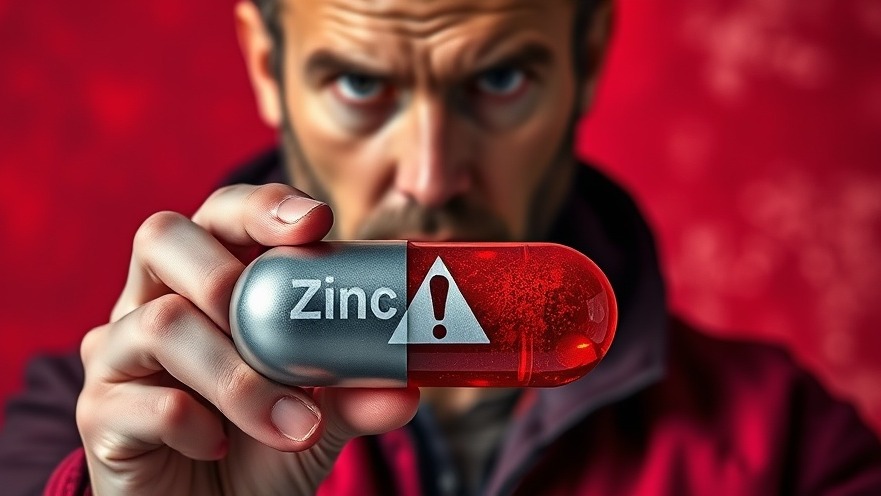
The Crucial Role of Zinc in Biochemistry
Zinc is often referred to as the unsung hero of biochemistry. Critical for the functioning of 200 to 300 different enzymes, this trace mineral is vital for various bodily functions, including the immune response and hormone production. Without adequate zinc, we jeopardize crucial systems that regulate our health. Dr. Burke emphasizes that not only is zinc essential, but the manner in which we intake it can lead to four significant mistakes that can undermine its benefits.
In 'The BIG Zinc Mistake', the discussion dives into the complexities surrounding zinc intake, exploring its crucial role in health and the significant mistakes that can occur if not managed properly.
The Fine Line: Too Much or Too Little Zinc?
According to Dr. Burke, one of the primary issues with zinc supplementation is the dosage. Many people mistakenly believe that more is better; however, taking excessive amounts of zinc can lead to copper depletion, thereby creating further health complications. He suggests a strategic approach: maintain a ratio of 10:1, zinc to copper, ensuring that for every 30 mg of zinc, 3 mg of copper is incorporated. This balanced intake helps to optimize the body's enzyme functions and avoid immune suppression, a notable paradox in understanding zinc's role.
The Importance of Co-actors in Zinc Absorption
Another common misconception is that zinc can work effectively in isolation. Dr. Burke highlights the need for co-actors—essential vitamins and minerals like magnesium, B6, and folate—to maximize zinc's efficacy. For example, magnesium deficiency can hinder zinc absorption and its biochemical actions. Practicing mindful intake of interconnected nutrients is crucial for ensuring that zinc works properly in the body.
Recognizing Zinc Deficiency: The Zinc Taste Test
Many individuals may be unaware of their zinc status until they experience noticeable health decline. Recognizing deficiency can be as simple as a zinc taste test, where individuals swish a zinc solution in their mouth. If it tastes like water, they are likely deficient. Knowing this can empower people to assess their nutrient levels and proactively seek foods rich in zinc like shellfish, red meat, and liver, which provide zinc more effectively than plant-based sources.
Navigating the Risks: Too Much Reliance on Dietary Sources
While zinc intake is critical, equally important is the recognition of signs that one may not be consuming enough. Factors like the consumption of grains high in phytic acid, diarrhea, stress from excessive alcohol consumption, or aging—where stomach acid levels decrease—can contribute to decreased zinc absorption. Additionally, individuals with high estrogen levels or diabetes may increase their need for zinc, highlighting the importance of tailoring dietary choices to specific health needs.
Transformative Benefits and Effective Recommendations for Seniors
Understanding the dynamics of zinc not only uncovers its importance in personal health but also highlights natural remedies that can optimize well-being, particularly among seniors. Engaging in mindfulness exercises, practicing yoga, or incorporating herbal remedies can both enhance zinc's absorption and improve overall mental wellness. This holistic approach underscores the significance of social connections, proper sleep hygiene, and relaxation techniques.
Practical Insights: Tailoring Zinc Intake for Optimal Health
For those looking to enrich their health with zinc, it's pivotal to articulate a personalized approach. Start by addressing deficiencies through foods rich in zinc and consider using high-quality supplements alongside co-factors. Engage in relaxation techniques and mindfulness practices to alleviate stress, which can impede zinc absorption. Prioritize creating a routine that integrates physical activity, a balanced diet, and relaxation to cultivate an environment conducive to health.
Effective zinc consumption is multifaceted and vital for maintaining health and wellness, particularly among older adults who may be more susceptible to deficiencies. As Dr. Burke's insights on zinc demonstrate, understanding how to leverage this essential mineral can empower individuals and enhance their quality of life.
 Add Element
Add Element  Add Row
Add Row 



Write A Comment